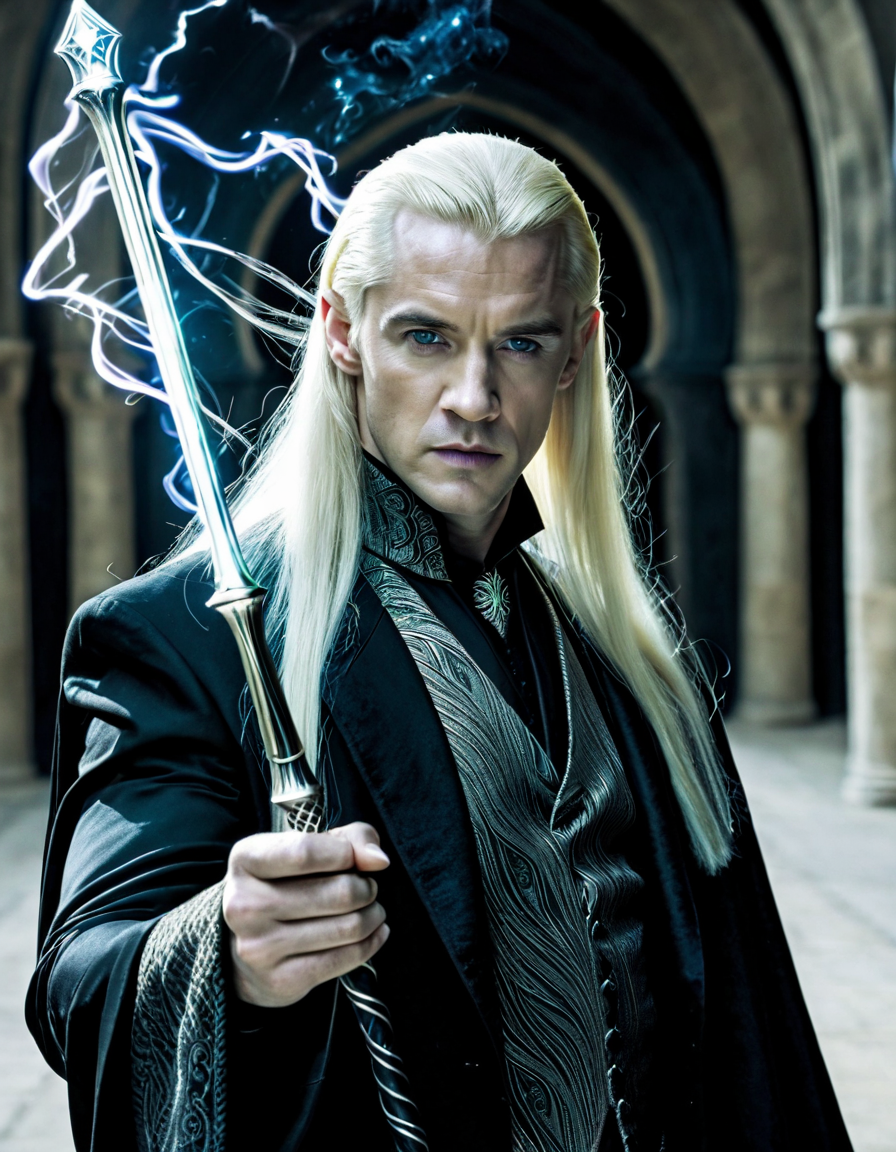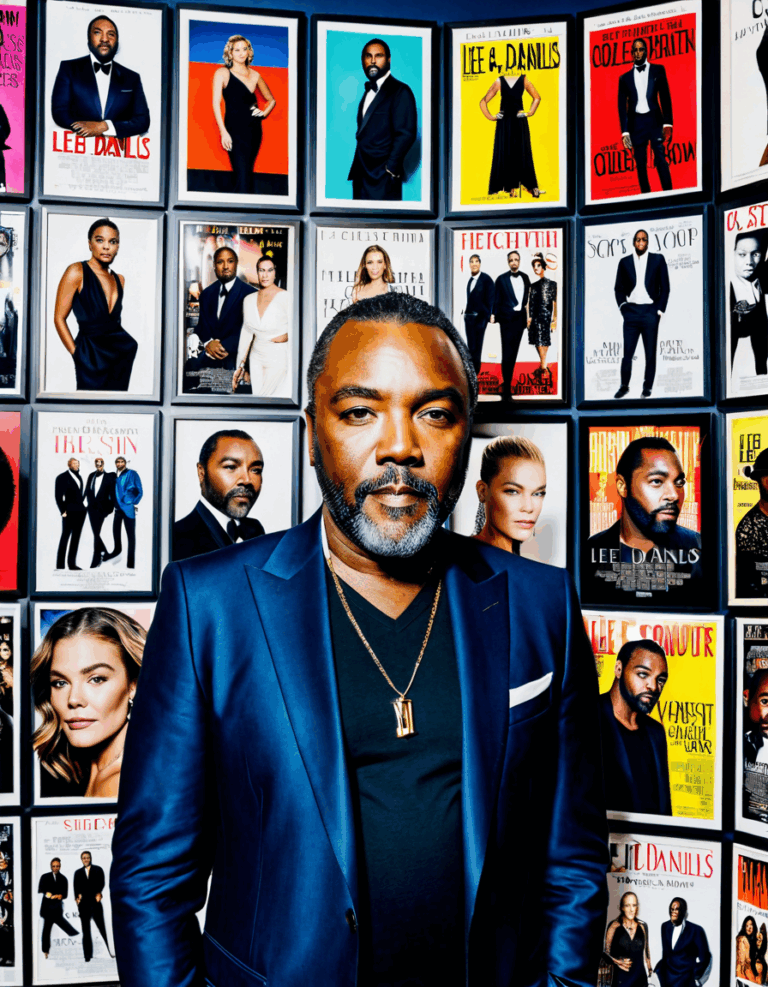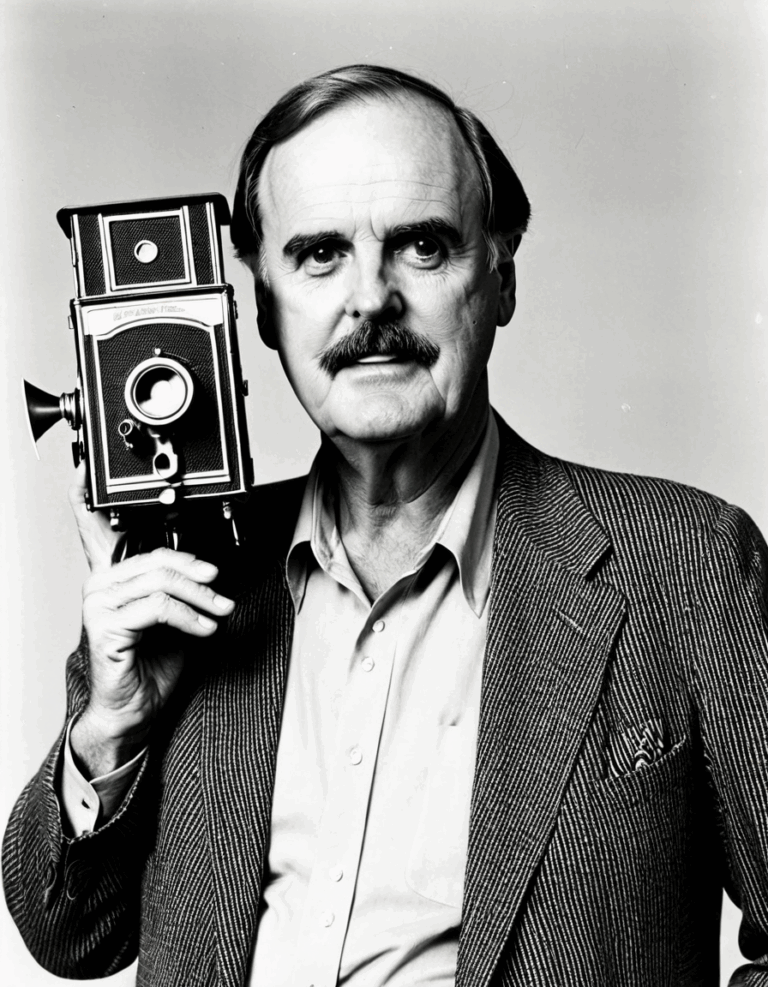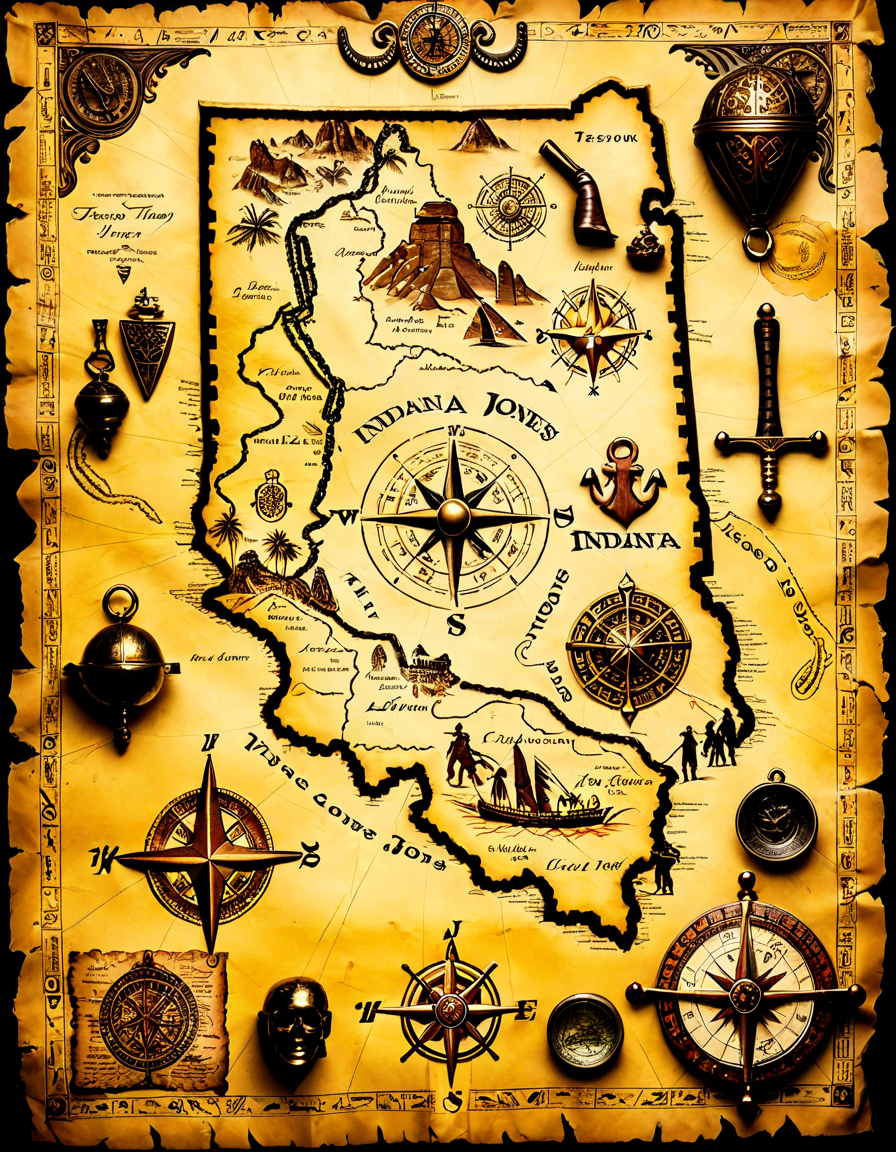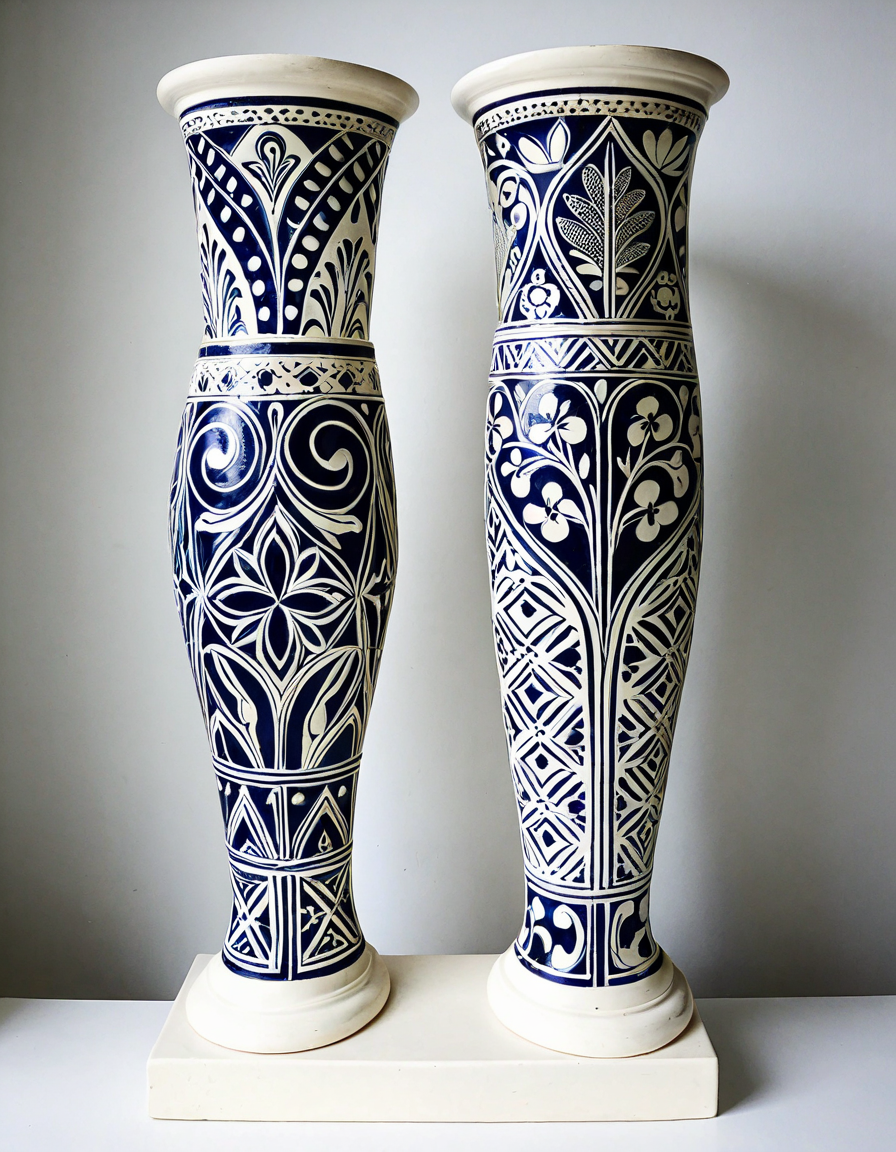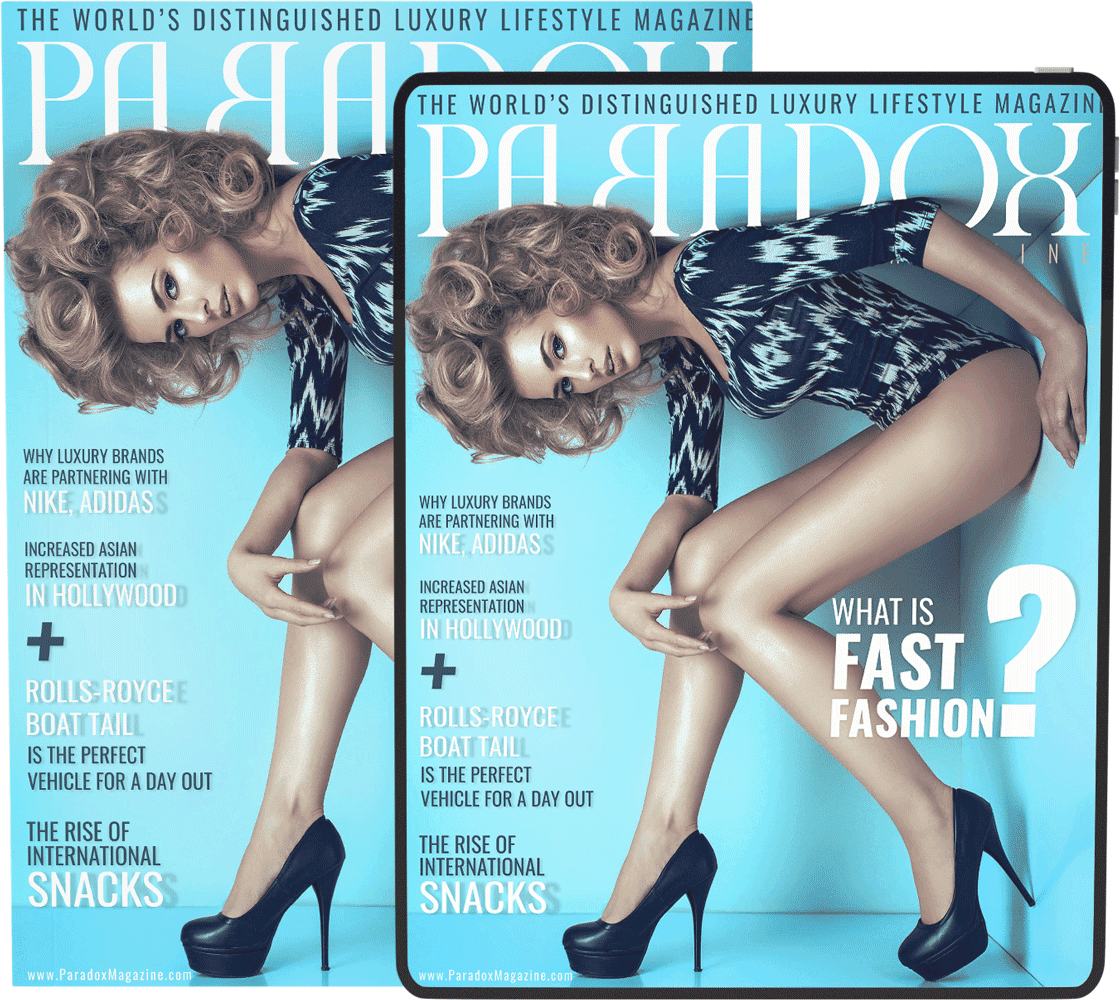Fashion isn’t just about threads; it’s about transformation, identity, and the stories we weave through our choices. Much like a striking haute couture gown at Paris Fashion Week, Lucius Malfoy stands out vividly in the Harry Potter tapestry. Synonymous with privilege, ambition, and, let’s be real, a fair share of villainy, Lucius Malfoy embodies the duality of being a devoted father alongside a dangerous Death Eater. This complexity leaves us pondering his motivations and how his decisions reverberate throughout his son’s life, the much-maligned Draco Malfoy. While Lucius struts in the classic villain archetype, a closer look uncovers layers of hurt, familial loyalty, and that burning desire for power that shapes his world.
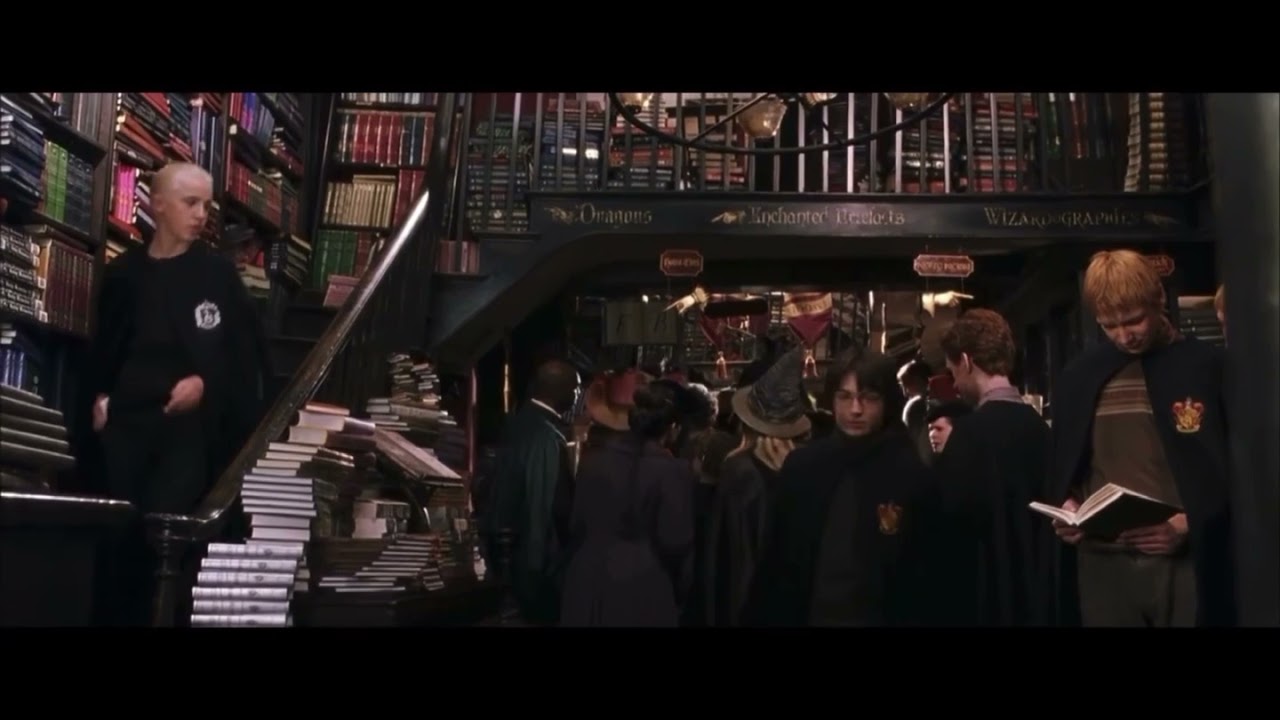
The Duality of Lucius Malfoy: Villain and Family Man
A picture-perfect family isn’t always what it seems, and Lucius Malfoy is the epitome of that paradox. On one hand, he’s that quintessential father figure trying to mold his son, Draco, into a supposed champion of blood purity; on the other, he’s a man steeped in betrayal. His devotion to Voldemort’s cause can seem absolute, almost like a designer’s unwavering commitment to their signature style; but when push comes to shove, his paternal instincts emerge. This sharp duality illuminates how Lucius captivates audiences as both a suffocating patriarch and an ambitious player in the wizarding world’s darker circles.
Moreover, that crushing weight of societal expectations plays a pivotal role in shaping Lucius and Draco’s tales. Much like choosing between styles on the runway, Lucius grapples with the demands of family loyalty and the hunger for power. His actions have a ripple effect, not just on himself, but on Draco, constantly strained by the immovable benchmark his father sets. This lends a fresh angle to the archetype of power; are we all just products of our patriarchs, or can we carve our own identities, much like how one can innovate and disrupt trends in fashion?
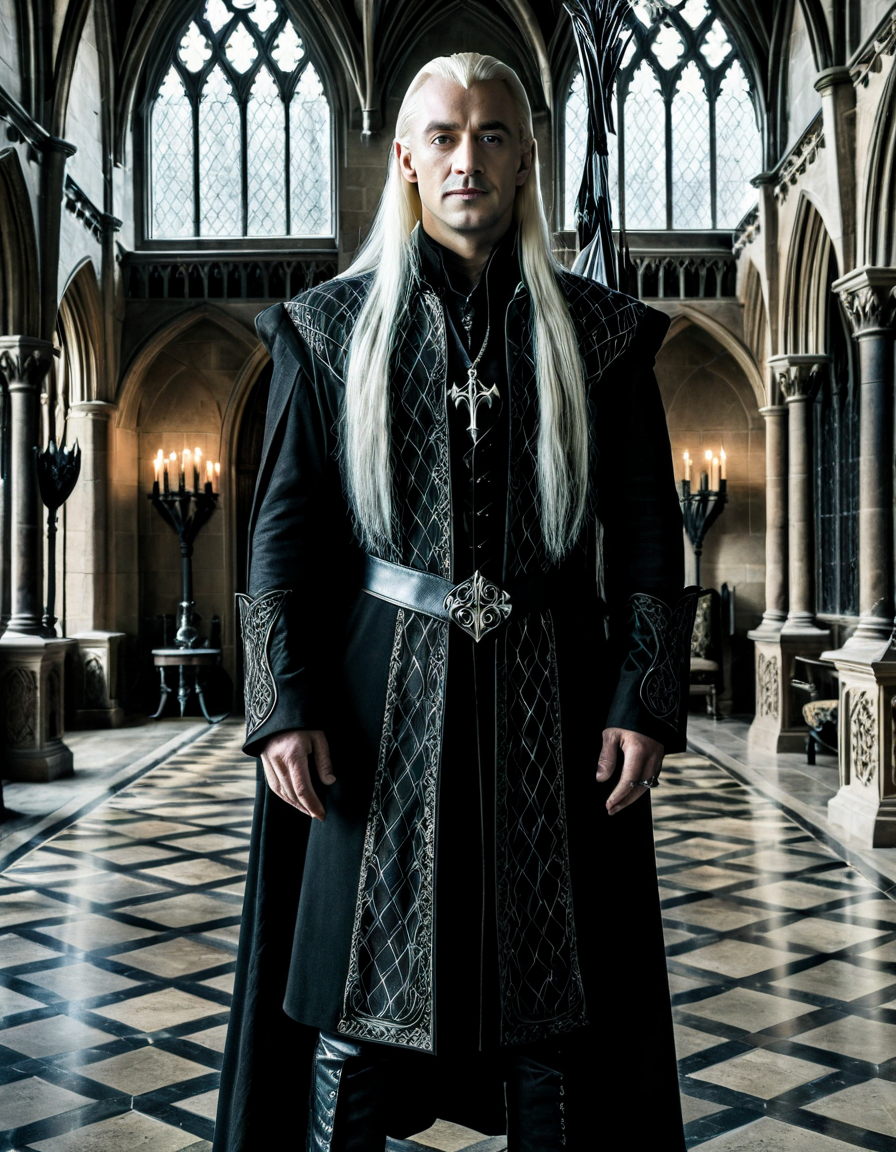
Top 5 Defining Moments in Lucius Malfoy’s Life
Lucius’s belief in pureblood superiority is not merely a backdrop; it’s the fabric of his being. This obsession drives his ambitions and ruthlessness as a Death Eater and imposes a heavy burden on Draco. It’s a powerful commentary on elitism, transcending wizarding lore to touch hot-button issues in our world today, like racism. Talk about a topic that hits home!
Ah, the turning point! Lucius’s alliance with Voldemort marks a height of ambition, echoing the journeys of many in their quest for success. However, the dark allure poses a significant conflict with his family’s future. This choice lays bare the tension between personal aspirations and responsibilities, mirroring what we often see in reality as quests for power clash with familial duties.
Imagine the fall from grace! As Voldemort’s reign crumbles, Lucius finds himself stripped of his coveted authority. This downfall illustrates the unstable nature of societal power—it’s as flimsy as a paper gown when the winds shift. This vulnerability leads Lucius to grapple with his identity, setting the stage for Draco’s character arc and their complex relationship.
Lucius’s unyielding pressure on Draco to uphold the Malfoy name creates tension that reverberates throughout the series. This father-son dynamic raises vital questions about how parental expectations can either stifle or encourage rebellion. Intriguingly, it invites readers to draw the line between familial duty and personal identity—a theme that resonates deeply in many households, wizarding or not.
Fast forward to the end, where Lucius grapples with the consequences of his choices. His shift from pure villainy to a more nuanced character creates a dialogue about redemption, forcing us to confront the idea that even those marked as “evil” can find a glimmer of hope. His journey opens avenues for reflection on personal growth in the wake of past failures, prompting us to ask: can we all evolve, just like fashion trends?

The Influence of Family Dynamics: Lucius Malfoy and Draco Malfoy
If there’s one thing that stands true about family dynamics, it’s that they shape our identities in indelible ways. The relationship between Lucius and Draco serves as a lens through which we can explore themes of power, loyalty, and the moral complexities intrinsic to their world. Lucius’s parenting style, rife with intimidation and unreachable expectations, creates friction that might surprise even the most seasoned fashionista.
Draco’s eventual rejection of his father’s pureblood ideologies post-war symbolizes breaking free from toxic legacies. This narrative twist reflects the possibility of autonomy amid familial shadow—a subtext many can resonate with. The parallels between Lucius and Draco raise compelling questions about the lasting effects of legacy on identity. It asks us to ponder: how much of ourselves are we willing to shed to escape our family’s constraining image?
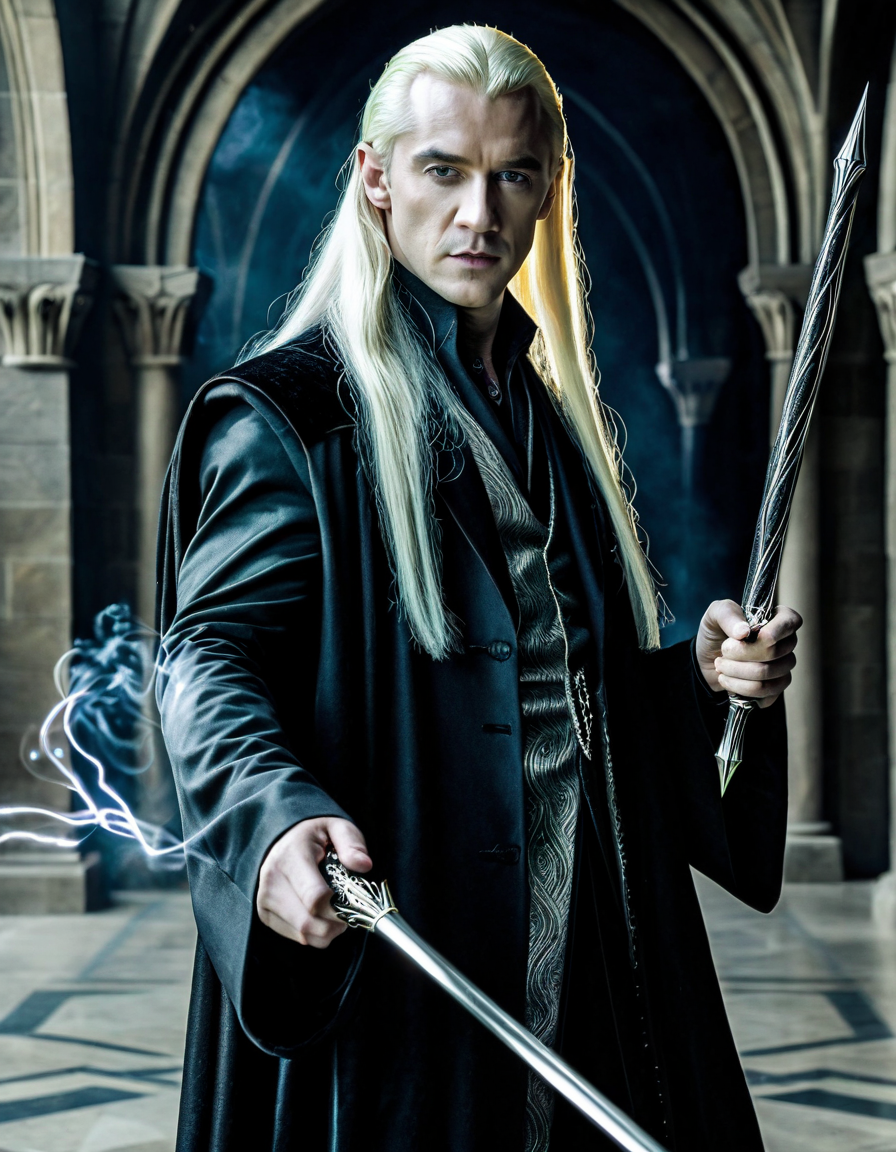
Analyzing the Symbolism of Lucius Malfoy’s Wand
Now, let’s turn to Lucius’s wand, that elegant yet menacing accessory he wields. Made of elm with a dragon heartstring core, it showcases his complexity—much like a striking handbag from a top designer. The wand symbolizes not just power, but the great responsibility that comes with it. Lucius’s choice exemplifies the nurturing of dangerous gifts that can veer into both creation and destruction.
Think of it as the ultimate fashion statement—a designer piece that makes a bold statement while carrying a heavy history. It serves as a reminder that greatness and the potential for harm coexist, much like the duality we often encounter in the most exquisite collections.
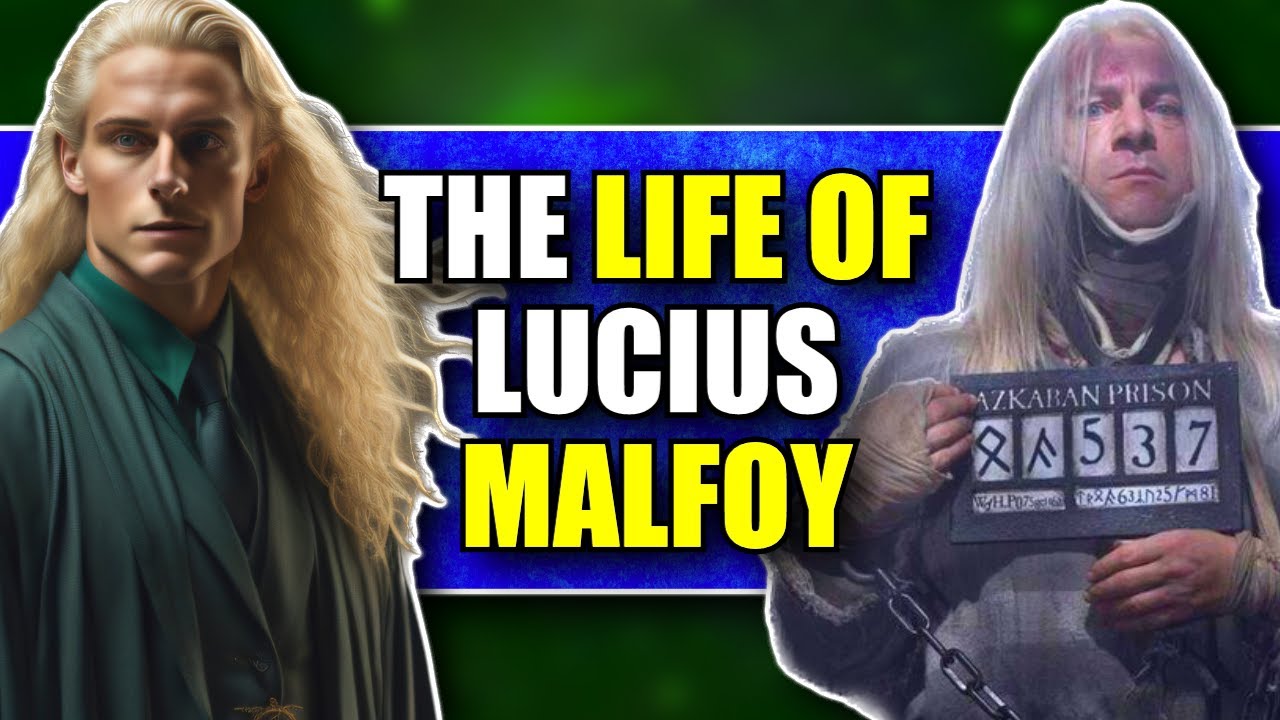
Redemption and Legacy: The Journey Beyond the Dark Mark
Ultimately, Lucius Malfoy’s tale is one of transformation, caught between the allure of elitism and the love for his family. His journey through the dark corridors of ambition speaks to the complexities of human nature and familial loyalty. As he confronts his past, we are reminded that legacies don’t just dictate paths; they offer the potential for redemption and growth.
As we bid adieu to Lucius, let’s take a moment to ponder our own legacies and choices. The wizarding world may have its magic, but the journey of Lucius Malfoy teaches us a vital truth: change is possible, and so is the chance for a more vibrant future than the past we once embraced. In a universe that continues to evolve, it seems that even the most odious characters can find layers of complexity, pulling us into a discussion that transcends the literary pages—reminding us of the delicate interplay between our choices, our family, and ultimately, our sense of identity. Embrace your style, reflect on your legacy, and remember: transformation is the ultimate act of fashion!
Lucius Malfoy: The Complex Journey of a Death Eater
A Noble Beginning
Did you know that Lucius Malfoy, one of the most prominent figures in the Harry Potter series, was born into a wealthy family? His aristocratic status allowed him access to elite circles, which he used to his advantage—much like how Kitty Carlisle, an iconic actress and vocalist, navigated the social elite of her time. But Lucius didn’t just coast on his family’s wealth; he actively sought power and influence in the wizarding world. His affluent lifestyle often came with a sense of superiority, as if he were surrounded by a lush, fresh international market of opportunities—each more enticing than the last.
Choices and Consequences
Here’s an intriguing tidbit: Lucius was known for his cunning and manipulative ways, much like some characters in Lopez Vs Lopez, who often wrestle with their own moral dilemmas. Although he became a significant Death Eater under Voldemort, his motivations were never entirely clear. Was he driven by pure ideology or the pursuit of power? Interestingly, his choices often mirror the complexity of relationships that many people experience, reminding us of those heartfelt declarations like I love My boyfriend. In Lucius’s case, however, love for power often overshadowed his attachments.
The Downfall
As the story unfolds, we see Lucius’s grip on power weaken. His fall from grace parallels the struggle many face when their ambitions turn into burdens. Much like trying to teach a puppy not to bite, Lucius learned some hard lessons—though these came at a hefty cost. When Voldemort’s reign crumbled, so did Lucius’s standing, forcing him into a life of obscurity, reminiscent of losing the spotlight one would expect with a celebrity like Lee Daniels.
In the end, Lucius Malfoy stands as a cautionary figure—his journey teaches us that power can be intoxicating but also perilous. Just like the intricate balance one must maintain between enjoying things like avocado and alcohol while dealing with joint pain, Lucius’s life illustrates the precarious line between ambition and downfall. And as the man himself shows, sometimes the charm of wealth can quickly fade when one’s loyalties are put to the test.
